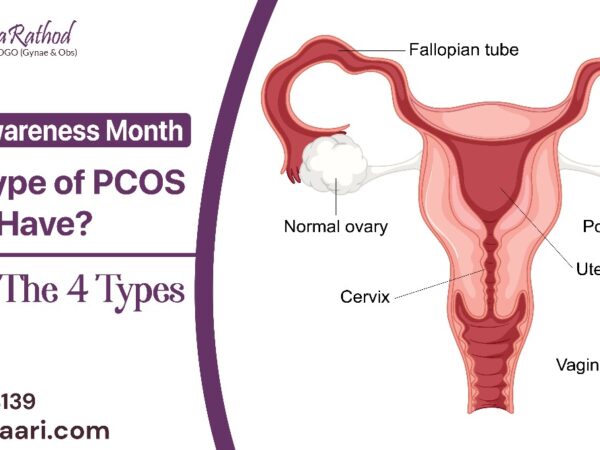You may have heard the phrase “eat for two” during pregnancy. While you don’t necessarily have to overeat, it’s important to eat a healthy and nutritious diet as it will affect you and your baby’s health. You need more iron, folate, choline, and other nutrients during this time. Women with PCOS must pay special attention to their diet, as they are at a higher risk of pregnancy complications, gestational diabetes, and miscarriage. Consult a PCOS specialist in Thane to develop an appropriate diet plan.
Healthcare experts believe that women who follow a healthy and balanced diet before conceiving or in the early weeks of pregnancy are highly likely to have a safe pregnancy. Here are a few things that will improve your diet and make pregnancy healthier and smoother.
Don’t Avoid Carbs
Carbs are important during pregnancy, as they provide the essential nutrients to your baby and are a source of energy for the mother. Add whole grains, whole fruits, lentils, and green veggies to your diet. These foods provide the essential vitamins and minerals to the fetus and mother, thus keeping you and the baby healthy.
Switch to fiber-rich carbs to keep your blood sugar levels in control and your energy levels high. Generally, doctors recommend up to 180gms of carbs a day for pregnant women, but that might vary for someone with PCOS. So, talk to your gynecologist before increasing/reducing carbs in your diet.
Count Your Calories
For a healthy pregnancy, the quality of the food is more important than quantity. Just because you are eating for two doesn’t mean you can increase your calorie intake. Women with PCOS must be more careful about their diet.
If you are wondering what’s the right amount of calories and how you should increase your calorie intake during pregnancy, start slow. You don’t have to make any changes during the first three months. Increase your calorie intake by 300 in the second trimester and add more as your pregnancy progresses.
Eat Seafood
Oily fish, especially the ones with scales, is a good source of omega-3 fatty acid, which is important for the brain development of the baby. Tuna, salmon, and mackerel are a few good options for pregnant women. You can have seafood once or twice a week. Seafood and organic meat are considered healthy for pregnant women, especially those with PCOS. In addition to being a good source of protein, seafood contains iron. This protects you from anemia in the later stages of pregnancy.
Limit Your Caffeine Intake
Caffeine is not good for pregnant women, and even worse for PCOS patients. Studies have shown that women who drink 2 or more cups of coffee a day report a sudden spike in the estrogen level, causing hormonal imbalance.
Reduce your caffeine consumption or replace it with a safer alternative, such as green tea. Its anti-inflammatory properties can be beneficial for women with PCOS. Having said that, green tea can affect the growth of neural tube development, so it’s best to limit your consumption to 1-2 cups a day. Another caffeine-free beverage is ginger tea.
Use a Multivitamin
Prenatal multivitamins do not replace your nutritious diet. The nutrition you get from vegetables, fruits, and other healthy foods are essential for your fetus. While multivitamins are important to give your body the nutrients it needs to function well, these shouldn’t be considered as a replacement for the food. Besides that, multivitamins offer calcium and other nutrients in adequate amounts, which might not be healthy for the fetus. So, take them only after consulting with the best obstetrician-gynecologist in Thane.


Comments are closed.